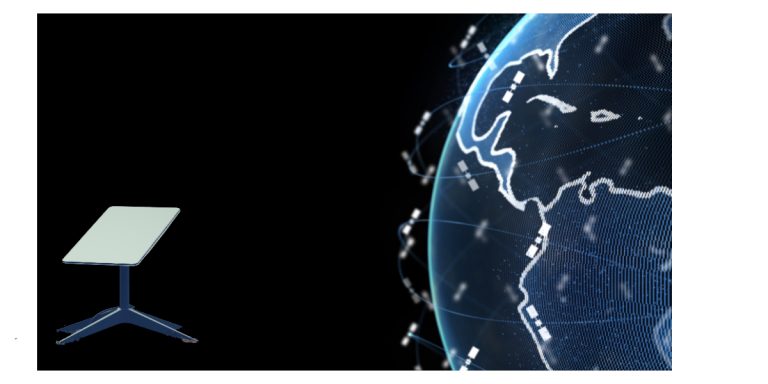Starlink’s Price increase in Nigeria: Understanding the Impact
Key Takeaway
Starlink, Elon Musk’s internet service company, has increased the price of its hardware by 112% in Nigeria, likely due to the declining value of the Naira against the dollar.
Summary
- Starlink, Elon Musk’s internet service company, has raised the price of its hardware in Nigeria by 112%, with the internet router now priced at ₦800,000 compared to its previous price of ₦378,000.
- Despite the price increase, the monthly subscription for Starlink’s internet service remains unchanged at ₦38,000.
- The devaluation of the Naira against the dollar is cited as a possible reason for the price hike.
- Starlink entered the Nigerian market in January 2023 and has attracted significant interest, particularly in areas with poor internet connectivity.
- According to data from the Nigerian Communications Commission (NCC), Starlink is now one of the leading ISPs in Nigeria with a customer base of 11,207 as of Q3 2023.
- Starlink initially quoted its prices in dollars but switched to Naira upon its official announcement in Nigeria. However, as the Naira continued to depreciate, the prices of hardware and subscriptions increased.
- Between October and November of the previous year, Starlink reduced its hardware costs by 21% but later reverted to the original price.
- Despite the higher costs compared to local ISPs, Starlink remains popular among Nigerians.
- The Naira devaluation has impacted various sectors in Nigeria, including the internet service industry.
Read The complete Story
Unraveling the Price Surge
The sudden surge in Starlink’s hardware prices has left many Nigerians perplexed, seeking clarity on the rationale behind such a significant hike. While Starlink has refrained from offering an official explanation, market observers point to the deteriorating value of the Naira against the dollar as a primary driving force behind this move.
Nigeria has been grappling with a persistent decline in its currency’s value, particularly in relation to the dollar. This depreciation inevitably translates into higher costs for imported goods and services, including the technology infrastructure required by companies like Starlink. Consequently, consumers bear the brunt of these increased expenses, as evidenced by the substantial spike in hardware prices.
Starlink’s Entry and Expansion in Nigeria
Starlink made its grand entrance into the Nigerian market in January 2023, eliciting significant excitement among consumers eager for reliable internet connectivity. Despite facing stiff competition from local internet service providers (ISPs), Starlink’s promise of high-speed internet delivered via satellite garnered substantial attention and patronage.
Data from the Nigerian Communications Commission (NCC) paints a telling picture of Starlink’s rapid ascent in the Nigerian ISP landscape, boasting a commendable customer base exceeding 11,000 as of Q3 2023. This meteoric rise underscores the burgeoning demand for dependable internet services in Nigeria, particularly in regions plagued by inadequate network infrastructure.
Implications for Consumers and the Industry
The repercussions of Starlink’s price hike extend beyond individual consumers, reverberating throughout the broader internet service industry in Nigeria. While existing and prospective customers may find themselves grappling with the financial implications of inflated hardware costs, the stability of monthly subscription fees offers a semblance of relief amid the turmoil.
For local ISPs, Starlink’s pricing upheaval serves as a wake-up call, signaling a paradigm shift in market dynamics. Faced with intensified competition and evolving consumer preferences, Nigerian ISPs must recalibrate their strategies to remain relevant and competitive in an increasingly crowded marketplace.
Navigating Challenges, Seizing Opportunities
As Nigeria navigates the turbulent waters of economic uncertainty and currency devaluation, stakeholders in the internet service sector must adapt swiftly to emerging challenges and capitalize on available opportunities. While Starlink’s price surge poses immediate hurdles, it also presents a unique opportunity for local ISPs to innovate, differentiate, and fortify their market positions.
Investments in infrastructure enhancement, service quality, and customer-centric initiatives can empower Nigerian ISPs to weather the storm and emerge stronger in the face of adversity. Moreover, concerted efforts to address systemic issues such as currency volatility and regulatory hurdles can pave the way for a more resilient and thriving internet ecosystem in Nigeria.
Conclusion
Starlink’s substantial price increase in Nigeria underscores the intricate interplay between economic factors, market dynamics, and consumer behavior shaping the country’s internet service landscape. While the immediate aftermath may entail challenges and uncertainties, it also heralds a new era of innovation, competition, and growth for the Nigerian internet industry.
As stakeholders chart their course forward, collaboration, adaptation, and strategic foresight will be instrumental in navigating the complexities of the evolving landscape and ensuring the seamless delivery of internet services to Nigeria’s burgeoning populace.
HASHTAGS:
#Starlink #NigeriaInternet #ISP #CurrencyDevaluation #MarketDynamics #ConsumerImpact #IndustryInnovation #EconomicAdaptation #InternetAccessibility #NigeriaTech

